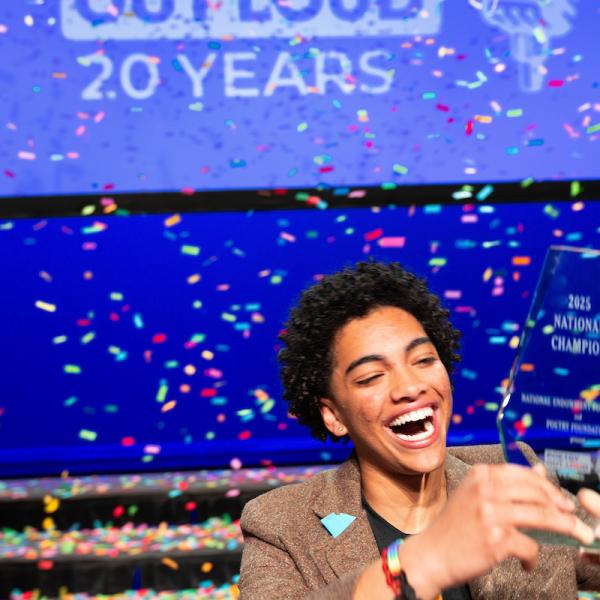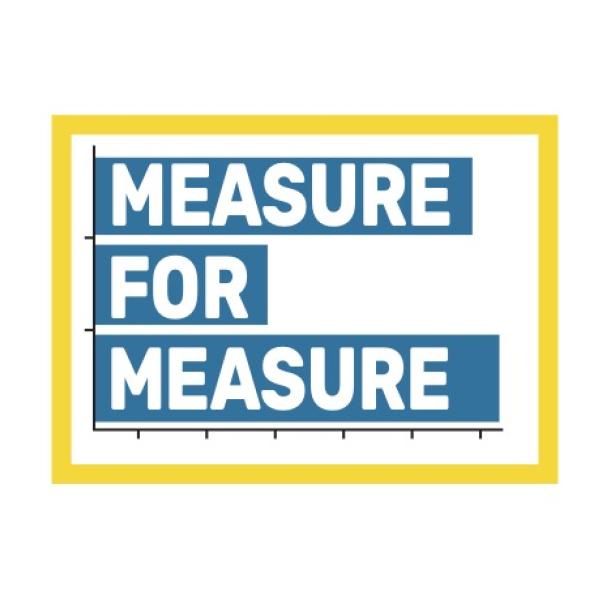Why Arts Education Matters

Judith Light. Photo by Jonathan Stoller
My mother taught me when I was three years old to memorize and recite "'Twas the Night Before Christmas." Everybody laughs, but it's absolutely the truth. My mother was my first teacher of the arts, and I performed "'Twas the Night Before Christmas" for my father, so he was my first audience. Even at that young age, I had a child’s intuition, which I would now say was a simple understanding of how art and culture affect us as human beings and how we can connect to each other through the arts. That understanding is something that defines my life to this day.
When I was growing up, my parents supported my interest in taking acting classes and doing community theater. My father drove me to the rehearsals every day after school, whenever I was doing community theatre productions, and I went to a performing arts camp in New Hope, Pennsylvania. I grew up in Trenton, New Jersey, and my parents even allowed me to go on the train to New York City when I was a young teen to study theater.
My parents' faith in me at that young an age—and the kind of professional training I was getting from my theater teachers—gave me a sense of purpose, a sense of self-confidence, a sense of discipline. I learned what artistic achievement actually was, what hard work the business was. I didn't have this rosy picture of what our business was. I was really learning what it would require for me to become a professional.
I was also learning about life. Working with great teachers like Ruth Strahan and Herb Hamsher, who’s also been my manager for 35 years, I learned about having faith in myself and about developing humility. Most people know that this business is all about not getting everything you want when you want it. Since success comes with such incredible gifts, many people don't realize that, for an actor, most of our lives are actually filled with recognizing that we can't control things. So I've learned, and am still learning as this is an active process, to simply be grateful for what I've been given. Those are very, very precious life skills that were all part of my arts education.
I became an actor, but arts education isn’t just about preparing our young people for a career in the arts. I’m on the board of several organizations that work with young people in the New York City area through theater education, including MCC Theater and LeAp OnStage. I recently went to a LeAp OnStage class, and I talked to some of the kids participating. Some of them want to work in theater, and some of them don’t. The program teaches them theater skills, but they also learn about the world around them. They learn about discipline and hard work and what's required and what they have to do to bring themselves to the work. They learn how they can be of service in the world through the arts. They learn how to elevate the people around them. They learn how to work with a team. By studying the arts, these students are exposed to worlds and lives that they might not have any other way of knowing about or any other way to connect with in their lives the way they are right now. Arts education expands their horizons.
These young people are our legacy. We are passing the torch to them. And I think that’s one of the most important reasons why we need to foster the arts. My late friend Wendy Wasserstein, the wonderful Pulitzer Prize-winning playwright, created a program called Open Doors, run by Theatre Development Fund, that brings young people to the theater. When you talk to them after they’ve seen a performance, you hear how their lives are changed exponentially. They feel differently about themselves and the world around them. I think when we get into the arts as young people, it tends to be pretty much about us and our egos. But as we really learn about the arts we discover that it is all about being of service and all about supporting others in seeing things they would not otherwise see—about themselves as well as other people.
Because of my own experience in arts education, and all of the visible ways I see it impact young people today, I was thrilled to learn that there’s a new honor from the Tony Awards®—the Excellence in Theatre Education Award—which is supported by a partnership between the Tonys and Carnegie Mellon University. I think this award underscores that the Tonys are not actually a competition; they are a recognition of achievement. Everyone who ever gets an award always wants to thank the many, many people who participated in their achievement, and really where it all always begins is with our teachers. So this award makes the Tonys a recognition of that beginning as well as the culmination of the achievement.
What’s even better is that this particular Tony award is open to nominations from the public. I know my own story is just one of many stories of the ways that people have been changed by arts education delivered by great teachers. I hope you’ll take a moment to nominate a great theater education teacher in your life for this award. I can’t wait to lead the standing ovation for our very first honoree this spring.
For three consecutive years, Judith Light was nominated for Broadway's Tony Award as Best Featured Actress in a play. She won back-to-back Tonys for Jon Robin Baitz's “Other Desert Cities"(2012) and Richard Greenberg's "The Assembled Parties" (2013). She also won back-to-back Drama Desk Awards for those performances. In 1999 she starred in the Pulitzer Prize-winning play "Wit" in New York and also at the Kennedy Center winning the Helen Hayes award. Her Broadway debut was in "A Doll's House” with Liv Ullman, followed by a season at the Eugene O'Neill Playwrights Conference. Judith received her BFA from Carnegie Mellon University and has worked in repertory theatres in the US, Canada and performed in Europe. In 2014, she was named the National Ambassador for the 19th KIDS NIGHT ON BROADWAY® by The Broadway League.



